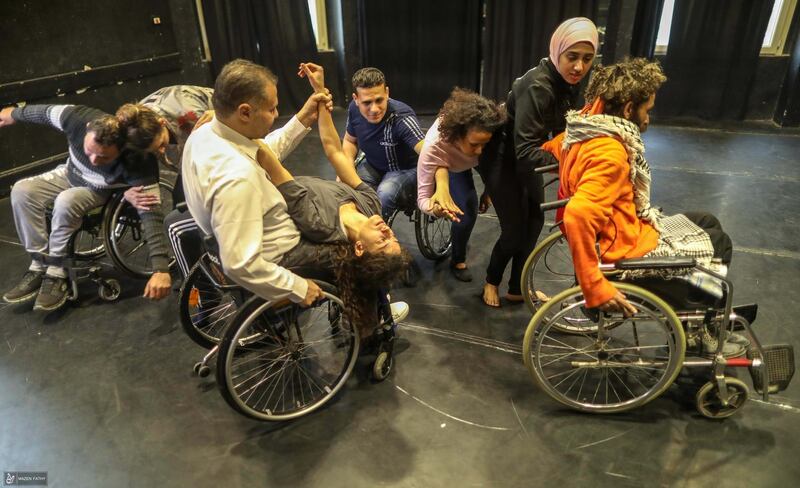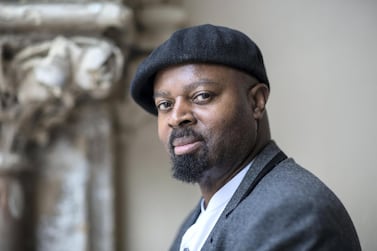Sitting in the dimly lit Rawabet Theatre in downtown Cairo one afternoon, 18-year-old Mohamed Tohamy is struggling to contain his excitement at being given the opportunity to work as an intern with Studio Emad Eddin Foundation. "I'm enjoying it a lot – all of the backstage details," he says.
Twelve students in total – three girls and nine boys – have been given year-long internships to work in the studio, which is known as Cairo's pre-eminent dance centre. The interns attend an NGO-run school called Tawasol in the impoverished informal settlement of Ezbet Khairallah in south Cairo. They are all governmental school dropouts, who take both academic classes and vocational training. To encourage attendance, they are paid to do so. Many of the their parents do not have full-time work.
It's because of such disadvantages that they were chosen as interns. As part of the placement, students learn the ins and outs of how to run a smooth stage show, including production management and light and sound design. They also worked every day at the three-week long Downtown Contemporary Arts Festival (D-Caf), one of Cairo's most dynamic arts and cultural festivals.
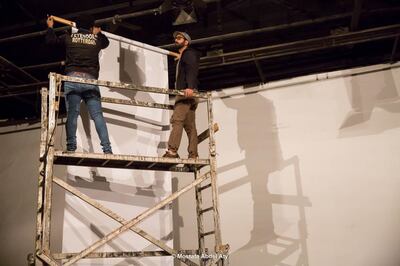
When we meet Tohamy, he is sitting in the studio with some of the other interns before a stage performance for D-Caf. His peers were just as excited about their new roles. "The most interesting thing is that we get to experience everything – it's a great opportunity to explore," 18-year-old Injy, who did not want her last name used, says.
"We are excited about getting paid as well … we would have been happy to do this without pay, but it's a bonus for us," she says.
But there are also some difficulties, specifically for women, in participating in such an internship, especially during the hectic schedule of a festival such as D-Caf. "The problem is the [late] working hours. Some family members are against us coming so late," Asmaa, 18, says. "But the festival is really flexible with us, and lets us leave when we need."
It's a challenge that Nevine Ibiary, director of workshop programmes and residencies at Studio Emad Eddin Foundation, as well as the director of workshop programmes for D-Caf, is well aware of. "Every day I tell them: 'I know you are girls, I'm going to take care … I'm not going to put pressure on if your parents say no, it's fine,'" Ibiary explains. "I'm taking it one step at a time – it's not rigid.
“I go to every single session, talk to the kids, talk to the trainers. I keep the boys late if I need to, and it’s OK with them.”
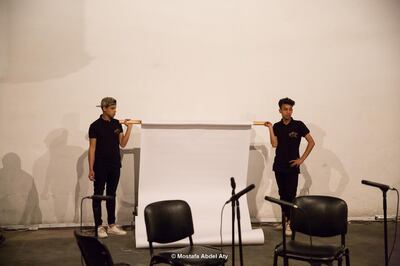
But it's also a programme that has had to start at the very bottom, in terms of teaching and learning. Many of the interns had not come into contact with such iterations of art or culture before.
"The whole culture [of art] for the interns does not exist, so we had to start from the very beginning – our training had to be very theoretical," Ibiary says.
"They are also so young, we are very careful about how this goes. Not because they are marginalised, but the thing is, they don't have any background in theatre and they don't know the arts."
It's an ambitious project in a lot of ways. In fact, if it weren't for the respect that Tawasol had in the community it serves, such a project wouldn't have been able to get off the ground at all. "If we had gone to the parents and told them about this 10 years ago, there's no way it would have been accepted," Yasmina Abou Youssef, executive director of Tawasol, says.
But in turn, the internship has worked to create awareness, and maintains a high level of respect in the community. "We are trusted, so the parents accept it now, and many of them work with the NGO itself," Abou Youssef says.
D-Caf is a festival that pushes boundaries artistically and culturally. But it's also ahead of the curve in other ways. Almost every year since it has been running – it's now in its eighth year – the festival has attempted to make its performances, exhibitions and concerts more accessible to parts of the population who are often not thought of, let alone included, in the artistic and cultural world of Cairo.
For three years there have been shows where the main performers are disabled, usually performed on the street to welcome passers-by.
In recent years, the festival has also made an effort to include others on the margins of Egyptian society – refugees and those living below the poverty line.
Last year, approximately 1,000 tickets were given away for free to people who couldn't afford to attend the festival, and to those who were unaware of its existence. Many tickets were also given away to Syrian refugees. This year, organisers hope to give away about 2,000 tickets.
Egyptian-Austrian writer and filmmaker Abu Bakr Shawky, who directed Yomeddine and was nominated for the prestigious Palme d'Or prize at the 2018 Cannes Film Festival, was in attendance at D-Caf to share his own insights on marginalisation.
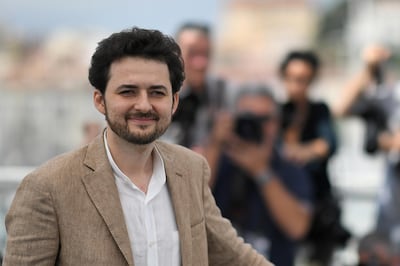
After all, the main character in Yomeddine, Beshay, is a man with leprosy who has been resigned for most of his life to a leper colony in a dusty backwater about 80 kilometres from Cairo. He decides to take a road trip almost the length of Egypt on a donkey cart to find his family, who abandoned him.
The actor who plays Beshay is a man from the leper colony itself. Leprosy is still highly stigmatised and looked down upon in Egypt.
Shawky, in an interview with The National during a screening of his film at D-Caf, says there are many ways to include society as a whole in Egyptian cinema.
"First of all, to show more films about [disadvantaged communities] if they do indeed exist, that's one of the things," he said. "I mean it's really little things – you have to have things for people who need to use sign language that make it accessible for other people.
One of the actors we worked with had no legs – but there was no ramp for many of the stages … That’s a major thing for people who need it.”
Cairo might be some way from providing these services universally to its citizens, including in the cultural sphere, due to a lack of funding, but it is trying.
Basma Hamed, who has been a press officer for the festival for seven years, and has also worked extensively across Cairo's festival scene, observed that this is the first year D-Caf has been able to include people with disabilities or disadvantages across the spectrum.
“This year, we have reached the three components: the performers, the technical team and the audience – it’s the first year we have had this,” she says.
Ibiary is also cautiously optimistic about the downtown cultural scene becoming more inclusive. “One of the important things of a festival is to not reach out to the usual suspects – the downtown scene,” she says.
"It's getting better, slowly. In Egypt, people are hungry to watch things – we want everyone to have the chance."
The Downtown Contemporary Arts Festival takes place in Cairo until Sunday
